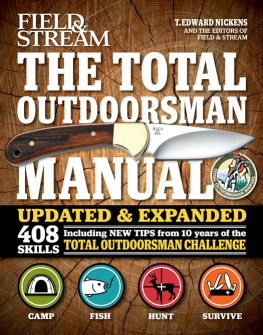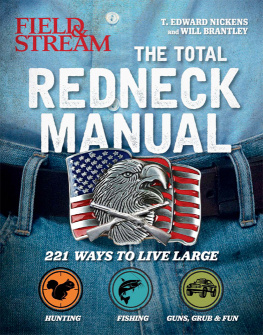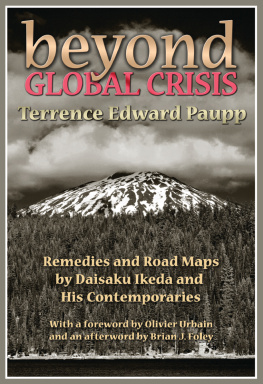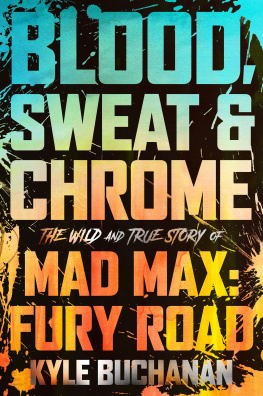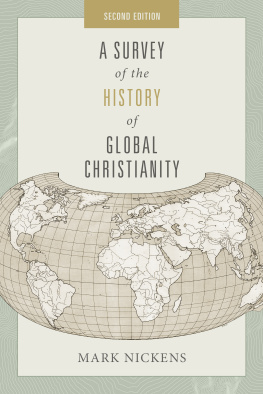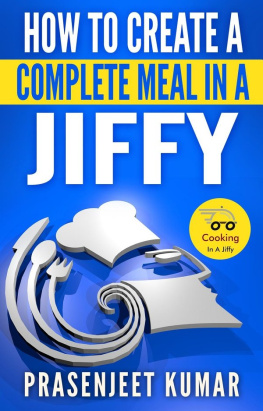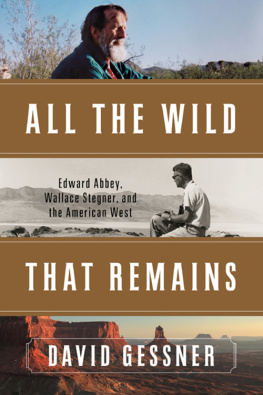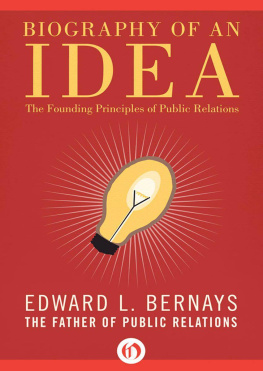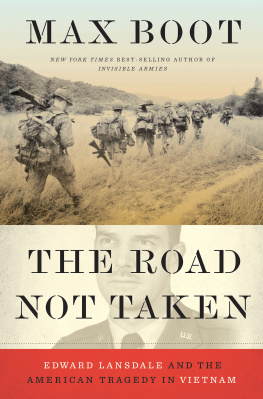T. Edward Nickens - The Last Wild Road
Here you can read online T. Edward Nickens - The Last Wild Road full text of the book (entire story) in english for free. Download pdf and epub, get meaning, cover and reviews about this ebook. year: 2021, publisher: Lyons Press, genre: Home and family. Description of the work, (preface) as well as reviews are available. Best literature library LitArk.com created for fans of good reading and offers a wide selection of genres:
Romance novel
Science fiction
Adventure
Detective
Science
History
Home and family
Prose
Art
Politics
Computer
Non-fiction
Religion
Business
Children
Humor
Choose a favorite category and find really read worthwhile books. Enjoy immersion in the world of imagination, feel the emotions of the characters or learn something new for yourself, make an fascinating discovery.

- Book:The Last Wild Road
- Author:
- Publisher:Lyons Press
- Genre:
- Year:2021
- Rating:4 / 5
- Favourites:Add to favourites
- Your mark:
- 80
- 1
- 2
- 3
- 4
- 5
The Last Wild Road: summary, description and annotation
We offer to read an annotation, description, summary or preface (depends on what the author of the book "The Last Wild Road" wrote himself). If you haven't found the necessary information about the book — write in the comments, we will try to find it.
The Last Wild Road — read online for free the complete book (whole text) full work
Below is the text of the book, divided by pages. System saving the place of the last page read, allows you to conveniently read the book "The Last Wild Road" online for free, without having to search again every time where you left off. Put a bookmark, and you can go to the page where you finished reading at any time.
Font size:
Interval:
Bookmark:
The fact that there are still magazines being printed, in one form or another, 580 years after Johannes Gutenberg invented moveable type, is an astonishment. And a testament to their irreplaceable storytelling power.
My small role in this history is due to outsized influences from some of the best editors in the business. Colin Kearns, editor-in-chief of Field & Stream and my collaborator on this book, has suffered greatly due to my love of compound modifiers and over-the-top flourishes of the keyboard. But when it comes to finding the story, the man can point the way to the heart of what matters like few others. The best of this book bears Colins mark as much as my own.
Ive benefitted greatly from other minds greater than mine. David DiBenedetto, formerly of Field & Stream and now editor-in-chief of Garden & Gun, has been an unfaltering influence. He and his old boss at both those titles, Sid Evans, first convinced me to write deeply about my hobbies of hunting and fishing, which I was loath to do for fear of ruining my fun. They were right about that, and many other things. Anthony Licata at Field & Stream continued their tradition of letting me run amok across the continent. And I cant be more grateful for the photographers whose work often stole the show in my stories. Ive shared many a mile with Tom Fowlks, Dusan Smetana, Colby Lysne, and others. And many a laugh and a few good cries.
I am fortunate beyond measure to have fallen in with magazines willing to invest time and treasure in supporting the time-consuming and often expensive pursuit of stories worth telling. That I can occasionally burn two full work days in order to wrestle into place every word in a single paragraph still boggles my mind. I am deeply grateful for the trust these people put into me. And for their grace when I would occasionally blow it.
But mostly, my ability to do what I love has come at no small cost to the one person who made it all possible: My wife, Julie. Sweet woman, I swear, this single thought sustained me across a million miles away from home: Every day I spent on the road was one day closer to coming home to you.
Trailhead
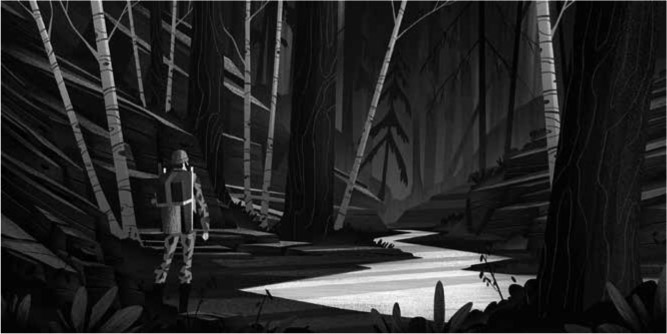
ILLUSTRATION BY BRIAN EDWARD MILLER
Id forgotten about his long stride, how quickly he covered ground. I remember practically running behind Keith Gleason, holding one of those old olive-green periscope-shaped Boy Scout flashlights in one hand, a homemade climbing stand banging the back of my legs as I tried to keep up. That was 40 years ago. Now, climbing a ridge in the North Carolina hardwoods, Im determined not to lag behind. The logging road takes a sharp bend, and Keith stops for a breather.
Look familiar? he asks.
Its a curious question to pose in the dark, when theres nothing to see but intersecting tree branches overhead and the next few feet of the path ahead. But Im not sure thats what Keith means. Im not even sure he expects an answer. Hes quiet for a moment, then turns up the trail. We climb.
Theres much of my childhood that I only faintly recall, but I remember this: Growing up, I dreamed of becoming a hunter. In some of my earliest memories, I am moving through the woods behind my house, a pellet rifle or small bow in hand, barefoot, feeling for twigs with the pads of my feet as I practiced stalking for whitetails. There was a jumble of busted-up concrete, dumped in the woods years ago, that gave me a vantage point across a small bottom. I called that spot the White Rocks. Perched there, I would watch for rabbits and squirrels. I would hope for a deer to emerge through the saplings.
Except it was all make-believe. Those woods behind my home were city woods. There wasnt a deer within miles. I never carried a real gun. Id never seen a rifle. No one in my family hunted. None of my friends were hunters. I had never even met a hunter. While its hard to overstate how badly I wanted to hunt as a kid, its equally difficult to overemphasize how far-fetched it seemed that I would ever get the chance.
Nonetheless, by the time I was 10 or 11 years old, I was consumed by the idea of hunting. I was a walking preteen wannabe clich: I squirreled away copies of Field & Stream and Sports Afield. I sent off for every free classified offer. I enrolled in the mail-in correspondence course offered by the old Northwest School of Taxidermy.
Ive often wondered about the roots of this obsession. I was always drawn to nature, but early on I sensed a need to be more than an observer. Maybe it was linked to my early love of biographies. I devoured the tales of fur trappers and early pioneers. I knew Jim Bridgers and Daniel Boones stories like kids today can cite Heisman statistics. Reading of their adventures was like living in a parallel realma reality that was just as real as my own, yet just out of reach.
I remember asking myself, over and over: Would I ever hunt?
Could I imagine a set of circumstances that would lead me to those places in the magazines, the woods where giant bucks ghosted in the morning, where ducks sprang from the marshes in a slanting rain? I could not.
Then, in the fall of 1974, everything changed.

Our headlamps light up the late fall color along the logging road, as if were walking through a kaleidoscope. The woods carry the sharp edge of tannin from the oaks, a slight tinge of decay. Its a two-track logging trail, and we start off shoulder to shoulder. But at some point I drop back a few steps, matching Keiths stride. We climb the ridge, incrementally, and as I listen to our footfalls in the leaves it occurs to me how different it was with Keith and me back then. There was nothing incremental about our meeting: There was a single defining shift at which my life took an irrevocable turnand what I do now and the things I love and who I am changed because of that moment.
More precisely, there were two moments.
My father loved to fly. He saved part of a slim salary working at a brake shop in my native High Point, North Carolina, to pay for flying lessons. I was little in those days, 8 or 9 years old. When he was in the air on his first solo flight, my brother and I were playing behind the airstrip, climbing a steep mud bank. I fell on a stick and slashed my face. The control tower called my father on the radio to flag him back to the ground. He asked if the gash was life threatening. It wasnt, so my father flew. Stitches could wait. Dreams couldnt.
He also loved the woods and took my mother, brother, and me camping up and down the North Carolina mountains. I remember bear tracks in the mud beside our tent in the Great Smokies. I can see him skinny-dipping in a mountain stream. He was a kid with kids, a mid-20s Air Force veteran who played football with the rest of us in the backyard. When his flying career took off, he moved into flight instruction and small-plane sales. He could sense a dream within his grasp.
By the time I was 13, my father was working full-time for a small aviation company. And then, a turn in the road. I was walking home from school, rounding the long curve in McGuinn Drive, when I noticed a line of cars in my familys driveway. The plane had gone down in a field up near Pilot Mountain. My fathers friends broke the news. They wouldnt yet allow me to see my mother, distraught in the back bedroom. Frightened and panicked, I fled to the woods. I was found there, some time later, standing on the White Rocks, staring into the trees.
A month after my fathers death, Keith Gleason, a 25-year-old man in our church, asked my mother if he could take me squirrel hunting the next Saturday. Keith had helped my dad with the boys group at church, and though he knew my father, there was no strong connection between them. He was fresh out of the Marine Corps, newly married, with time on his hands and enough intuition to know that a young grieving boy might need a distraction. My mother, grateful for the gesture, said yes.
Font size:
Interval:
Bookmark:
Similar books «The Last Wild Road»
Look at similar books to The Last Wild Road. We have selected literature similar in name and meaning in the hope of providing readers with more options to find new, interesting, not yet read works.
Discussion, reviews of the book The Last Wild Road and just readers' own opinions. Leave your comments, write what you think about the work, its meaning or the main characters. Specify what exactly you liked and what you didn't like, and why you think so.

